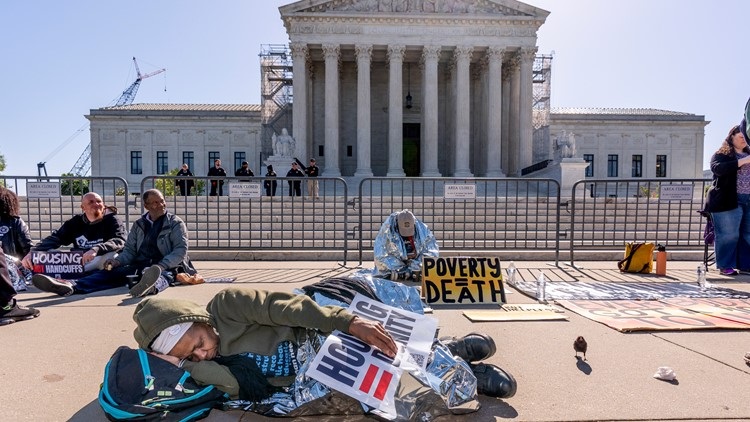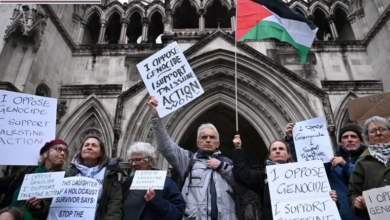US Supreme Court Upholds Anti-Camping Laws in Grants Pass, Oregon, Enabling Crackdown on Homelessness

News Mania Desk/ Agnibeena Ghosh/1st July 2024
In a significant ruling, the US Supreme Court has supported anti-camping laws in Grants Pass, Oregon, permitting the city to prevent homeless individuals from sleeping in public spaces such as parks and streets. This decision empowers law enforcement to ticket, fine, or arrest those sleeping in public areas, potentially paving the way for similar laws across the nation that could criminalize homelessness.
The 6-3 decision reversed a lower court ruling that deemed the enforcement of these ordinances unconstitutional under the Eighth Amendment’s prohibition against “cruel and unusual” punishments when no alternative shelter is available. Justice Neil Gorsuch, writing for the majority, emphasized the complexity of homelessness and argued that it is not the role of federal judges to address the causes or devise responses to homelessness under the Eighth Amendment. Gorsuch stated, “Homelessness is complex. Its causes are many. So maybe the public policy responses required to address it. At bottom, the question this case presents is whether the Eighth Amendment grants federal judges primary responsibility for assessing those causes and devising those responses. It does not.”
This ruling brings to light the ongoing struggle to manage homelessness in the United States, where a shortage of affordable housing continues to challenge many cities. An estimated 600,000 people are homeless on any given night across the country. Critics of the decision argue that laws like those in Grants Pass effectively criminalize homelessness and unfairly penalize individuals for unavoidable actions, such as sleeping in public spaces. They maintain that these laws target vulnerable populations who have no other options for shelter.
Conversely, supporters, including various government officials, contend that these laws are necessary for maintaining public safety and order. They argue that without such regulations, public spaces could become unsafe or unusable for the general populace.
The case originated in 2018 when three homeless individuals sought to prevent the enforcement of the anti-camping ordinances in Grants Pass. The city defended its position by highlighting that homeless individuals had alternatives outside city limits, such as undeveloped federal land, county campsites, or state rest stops. However, US Magistrate Judge Mark Clarke, who initially ruled on the case, interpreted this stance as indicative of the city’s desire to either drive out its homeless population or punish them for staying. Clarke ruled that the city’s “policy and practice of punishing homelessness” violated the Eighth Amendment, and he barred the city from enforcing the anti-camping ordinances.
The Supreme Court’s decision overturns this earlier ruling, marking a crucial point in the national debate over how to address homelessness. This ruling could influence other cities to adopt similar measures, potentially leading to a broader criminalization of homelessness across the United States.
As cities continue to grapple with homelessness and affordable housing shortages, this decision underscores the complexity and contentiousness of finding humane and effective solutions. While some see this as a necessary step for public safety, others view it as a punitive measure that fails to address the root causes of homelessness. The ongoing dialogue will likely shape future policies and legal battles as the nation seeks to balance compassion with public order.






